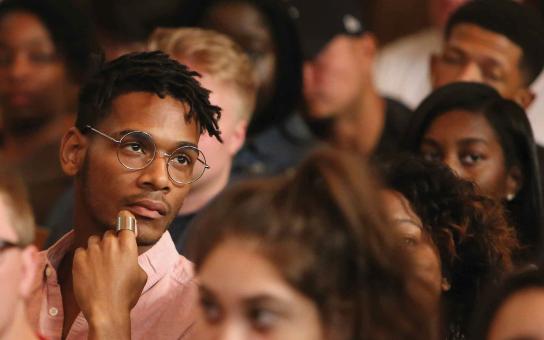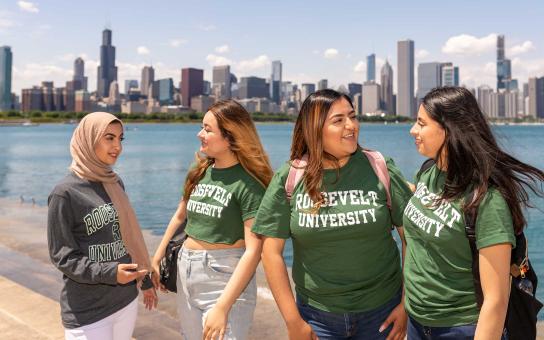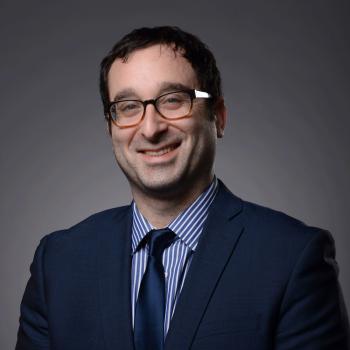Bachelor’s in International Studies, BA
International studies is a growing interdisciplinary field that offers students the opportunity to study politics, economics, history, sociology, anthropology and communication as parts of a complex and evolving global system. Rather than focusing just on relations between states in the international system, the international studies major affords students the opportunity to create a focus on particular geographic areas of the world, the evolution of the international system itself, or on global race, gender and activism.
Why Roosevelt for Your Bachelor’s

Apply a Social Justice Lens
At Roosevelt, we study the international system with a focus on the pursuit and realization of social justice across national boundaries, producing graduates with fluency in contemporary debates as well as the moral and ethical foundation to be leaders and global citizens.

Learn in a Global Classroom
International studies at Roosevelt University is unique because of the interactions between our dedicated faculty and diverse student body. Students from all around the world and from a diverse set of U.S. backgrounds meet in our classrooms to teach and learn from each other, guided by devoted faculty with expertise around the globe and a mission to educate socially conscious global citizens.

Study in an International City
Downtown Chicago is an ideal location for those pursuing international studies. A growing, bustling and vibrant global city, Chicago is host to numerous international organizations, government offices, advocacy centers and think tanks, and plays host to countless international conferences. Chicago's neighborhoods provided the beginnings for so many immigrant families, and there are countless ways to experience cultural events and museums, such as the Ukrainian National Museum, the National Museum of Mexican Art or the Polish Museum of America.
“I cannot say enough positive things about being an international studies major at Roosevelt University. The international studies program faculty are caring and compassionate and are a source of inspiration to their students. My advisers helped me not only academically, but also offered me a lot of personal insight on what my next career steps would look like. My experience at Roosevelt prepared me for my internship with the United Nations High Commissioner for Refugees in Nigeria, as well as my plans for graduate study in public administration focusing on non-governmental organization management."
Sonia Tsoungui, 2015
International Studies, BA






